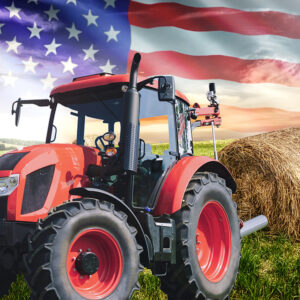Where would our country be without farmers?
From America’s great Heartland with its wonderful amber waves of grain to the South with its vast sugarcane plantations to New Hampshire and its historic small farms, a way of life is under siege. American farmers—forever a mainstay of our nation—continue to be subjected to unfair trade practices that threaten their livelihood and everyone’s food security. Americans need to fully appreciate the vital importance of domestic agriculture and understand the need for strategies that can sustain this crucial part of our economic infrastructure.
Our rich agricultural tradition dates back centuries, encompassing everything from corn to sugar beets to soybeans to poultry to dairy to so much more. American farmers work tirelessly to help feed not only our nation but also the world. But their efforts face a barrage of challenges, largely stemming from unfair practices employed by trading partners.
Take the current farm bill debate in Washington. We find much irony there as our food companies advocate for policies that greatly hinder American agricultural interests. Because these entities seemingly don’t care where their ingredients come from, our domestic food production is put at risk. For example, some candy company executives push out a false narrative that American sugarcane and beet farmers caused a “sugar shortage.” On the contrary, according to USDA estimates, our nation is expected to have a 1.6 million-pound sugar surplus at the end of October.
To embrace foreign food producers as opposed to American farmers is to threaten short-term local agricultural well-being while jeopardizing our nation’s long-term ability to feed itself.
An over-emphasis on corporate bottom lines that hinder domestic agriculture is problematic. Just as energy independence enhances national security, so too does agricultural independence. To become dependent on foreign food producers is to invite future peril.
We should celebrate and honor the hard work and dedication of those who till the soil and raise livestock to put food on our tables. Buying locally and supporting farmers’ markets improves agricultural sustainability while keeping dollars in our communities as opposed to sending those dollars to other countries.
Food sovereignty matters! We should counter those unfair trade practices that threaten our farming communities. New Hampshire is blessed to have candidates for national office regularly visit here. We should ask them about food security issues and our agricultural well-being. We should never forget the essential role our farmers have always played in our lives and our national interests. Our future truly depends upon implementing enlightened farm policies.



